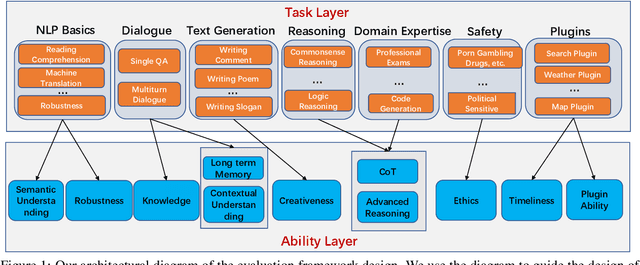TencentLLMEval: A Hierarchical Evaluation of Real-World Capabilities for Human-Aligned LLMs
Paper and Code
Nov 09, 2023



Large language models (LLMs) have shown impressive capabilities across various natural language tasks. However, evaluating their alignment with human preferences remains a challenge. To this end, we propose a comprehensive human evaluation framework to assess LLMs' proficiency in following instructions on diverse real-world tasks. We construct a hierarchical task tree encompassing 7 major areas covering over 200 categories and over 800 tasks, which covers diverse capabilities such as question answering, reasoning, multiturn dialogue, and text generation, to evaluate LLMs in a comprehensive and in-depth manner. We also design detailed evaluation standards and processes to facilitate consistent, unbiased judgments from human evaluators. A test set of over 3,000 instances is released, spanning different difficulty levels and knowledge domains. Our work provides a standardized methodology to evaluate human alignment in LLMs for both English and Chinese. We also analyze the feasibility of automating parts of evaluation with a strong LLM (GPT-4). Our framework supports a thorough assessment of LLMs as they are integrated into real-world applications. We have made publicly available the task tree, TencentLLMEval dataset, and evaluation methodology which have been demonstrated as effective in assessing the performance of Tencent Hunyuan LLMs. By doing so, we aim to facilitate the benchmarking of advances in the development of safe and human-aligned LLMs.
 Add to Chrome
Add to Chrome Add to Firefox
Add to Firefox Add to Edge
Add to Edge